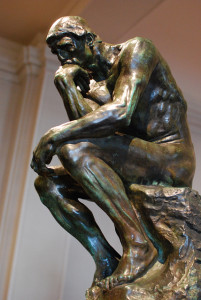“What you do today is important because you are exchanging a day of your life for it.”
—Author Unknown
What is a day worth? If you were to calculate the monetary value of one full revolution of planet Earth, what would the exact value be?
The professional service providers who are my coaching clients often bill out at hourly rates. Just to make the math simple for this example, we’ll assume a rate of $200/hour. One 24-hour day would be worth $4,800.
Add that to the qualitative value you attribute to each day you spend with family, friends, and colleagues, engaged in enjoyable and meaningful pursuits.
EXERCISE:
Based on the scenario above, select a number which represents the value you attribute to a single day. As you look at today and look forward to tomorrow, how will you spend your “life equity” to make the most of this miracle called life?



